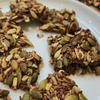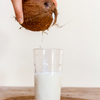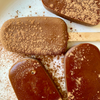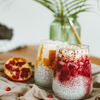8 Healthy Foods That Are Secretly Causing Your Bloating: A Gut Expert’s Guide
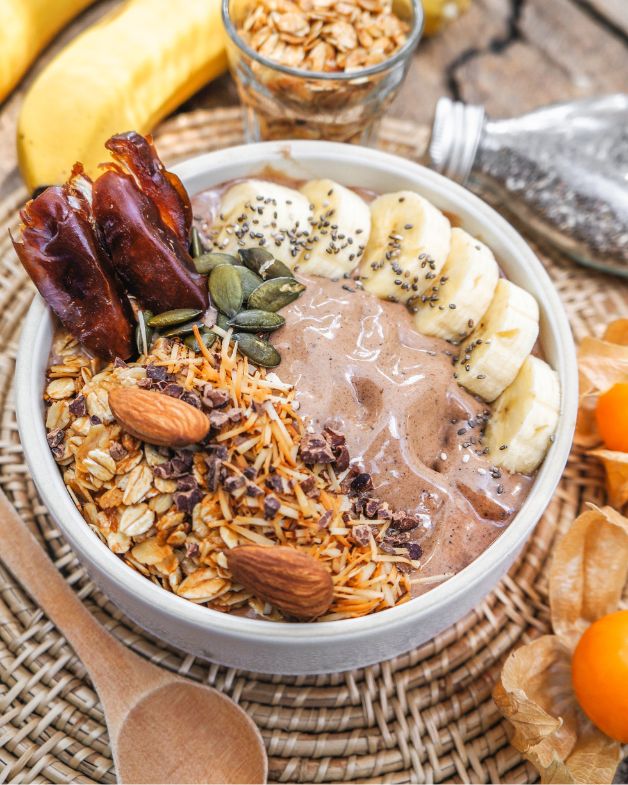
Isn’t it confusing when you clean up your diet and start eating more of the foods you’ve been told will help heal your gut, yet your bloating becomes ten times worse. You’re not alone in this frustrating experience. I have heard plenty of my patients say this when they first come to see me for my gut expert advice. They often say that when they decided to go vegetarian, gluten free or increase the fermentable foods in their diet in an attempt to help their bloating, IBS or SIBO symptoms and yet it did the opposite.
So confusing, right?!
So let me share with you the top eight healthy, gut healing foods that are secretly triggering your bloat, why this is happening and the best thing you can do to improve your tolerance to these foods.
1. Yoghurt
Yoghurt that is made from cows, sheeps or goats milk can trigger bloating. The reason for this is that it contains lactose. Lactose is a sugar that requires lactase enzymes to break it down which is a problem for many as it it thought that on average, 65% of the world's population is lactose intolerant(1).
2. Dried fruit
How many dessert or snack recipes labeled as healthy, raw and gut healing have you seen that use dried fruit, especially medjool dates as the sweetener? Lots! While wholefoods provide additional health benefits compared to plain white sugar, dried fruit is a massive bloating trigger. This is often due to the presence of the fermentable sugars; sorbitol, fructan and fructose. Not only that, but often we are eating so much more dried fruit compared to their fresh counterparts. For example it’s easy to eat five dried apricots compared to five whole fresh apricots.
3. Legumes and pulses
Beans, lentils and chickpeas are incredible for your gut microbiome but horrendous for you if you experience bloating. Many of these foods contain a type of resistant starch (a type of non digestible fiber) in the outer shell of beans which is why for most people, whether you suffer from bad bloating or not, they usually cause some sort of farty party. For those that have more extensive bloating issues the presence of galacto-oligosaccharides and fructans can trigger bloating as well.
4. Gluten free products
In my Melbourne naturopathic clinic, one of the first things people have told me when trying to reduce their bloat is that they cut out gluten. While gluten is a genuine issue for some people, moving to gluten free doesn’t guarantee you the bloat free belly you deserve. Often gluten free products are highly refined, and use thickeners and starches to help with texture and consistency. If anyone can remember gluten free bread 20 odd years ago, you’ll remember it was like a brick. These days they are softer and fluffier which is great because you aren’t eating a brick, but you are probably consuming sneaky bloat triggers.
5. Cruciferous vegetables
Broccoli, cauliflower, cabbage, kale, bok choy, arugula, brussels sprouts, collards, watercress and radishes are all types of cruciferous vegetables. While these are some of the best and healthiest foods I encourage people to eat, there are a few reasons why they may cause bloating.
The first is that they contain a type of carbohydrate called raffinose, which we don't make the enzyme needed to break it down. As a result it passes through the small intestine undigested and when it enters the large intestine it gets fermented by bacteria and causes gas. The second reason is that these types of vegetables contain fermentable sugars called fructose, mannitol and fructans which can also be fermented to cause gas.
6. Onion and garlic
Onions and garlic (but also shallots and leeks) contain the fermentable carbohydrate called fructans. These ingredients can cause havoc to your bloating as they are used in so many dishes, sauces and flavorings as they are so delicious.
7. Natural sugar free products
Just because something is natural and sugar free does not mean it is good for your bloating. A group of sugars which are classified as sugar alcohols are some of the sneakiest bloat triggering foods. Sorbitol, erythritol and xylitol are commonly used in products that are marketed as healthy sugar free alternatives. While it is true they are a better choice for your blood sugar compared to regular sugar, they are terrible for bloating if you suffer from it.
8. Kombucha
As a Melbourne gut naturopath I love a good ‘buch (especially in Summer) but it’s not nice for many of my bloating patients. Often this is because you are literally swallowing bubbles, something your gut doesn’t need more of when you have a gut issue. The other issue is that they are often sweetened with natural sugars such as xylitol or erythritol which can be easily fermented.
“Why do these healthy foods cause me to bloat?” You may be wondering.
Before we dive into the why please be aware that these foods aren’t causing your bloating, rather they are triggering your bloating. The difference between this is that when you see food as the trigger it means you understand that something else is the cause of your symptoms and that in the presence of your trigger food just creates a reaction. This is also why removing foods or going on a food elimination diet long-term like a low FODMAP diet isn’t the treatment, it is just a band-aid and/or symptom relief approach.
The real cause of you bloating to these foods is that something is out of balance in your body. I share my step-by-step protocols and the best tests to use to understand and treat your bloating root cause in my course Bloated to Body Confident. As one of the best gut naturopaths in Melbourne, I go into details about the biggest causes of bloating that testing and treating leaky gut, small intestinal bacterial overgrowth, fungal overgrowth, large intestinal dysbiosis, acid and enzyme deficiencies and so much more!
It is possible to tolerate these foods again if you treat your intolerance issue from the root cause.




